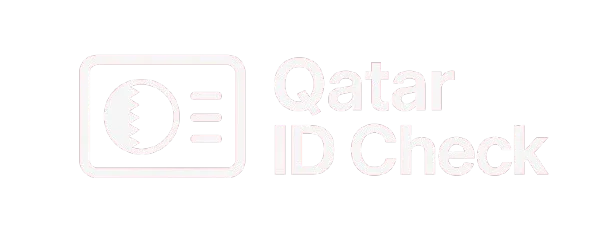Qatar Residency Program Salary and Investment Criteria Explained
If you’re considering a long-term stay in Qatar, it’s important to understand the salary and investment criteria of the Qatar Residency Program. Whether you’re planning to work, invest, or apply for permanent residency, knowing the financial eligibility is a key step. In this guide, we’ll break down the exact salary requirements, investment thresholds, and who qualifies under each category.
The Qatar residency program salary and investment rules define whether a person qualifies for long-term or permanent stay. Meeting the minimum financial thresholds is essential for approval, whether applying through work or investment. If you’re planning to go beyond temporary residence, you should also review the complete guide to Qatar permanent residency to understand the full process, eligibility, and benefits involved.
For anyone navigating the Qatar ID process, it’s smart to start with this complete Qatar ID status verification guide, as your QID status plays a central role in all residency applications.
What Is the Qatar Residency Program?
The Qatar Residency Program allows eligible foreigners to live in the country either temporarily or permanently. While temporary residence is linked to employment or sponsorship, permanent residency gives expats the right to live, invest, and access key public services in Qatar without a local sponsor.
There are several pathways:
- Employment-based residency
- Investment-based residency
- Property ownership
- Exceptional contribution or humanitarian cases
In all cases, financial eligibility is critical.
Qatar Residency Program Salary Requirements
The Qatar residency program salary requirement mainly applies to employment-based and exceptional cases. To qualify:
- Minimum monthly salary: QAR 20,000 (approx. USD 5,500)
- The salary must be from a reputable employer in Qatar
- Applicants must show proof via bank statements or salary certificates
- Some categories, like highly-skilled professionals, may be accepted with slightly lower income if they provide other qualifications
If you’re working in Qatar and plan to apply, ensure your income is officially documented and tax-compliant. You’ll also need to maintain a valid Qatar ID, and in case of expiration, you can find QID renewal instructions here.
Investment Criteria for Qatar Residency
For those applying through the investment route, the government has set clear thresholds to attract high-value investors:
- Real estate investment: Minimum QAR 1,000,000 (approx. USD 275,000)
- Business or commercial investment: Varies, but generally QAR 3,000,000 or more
- Bank deposit route (rare): Typically QAR 1,000,000+ with a lock-in period
All investment applications must be supported by:
- Legal documentation
- Asset ownership proof
- Ministry of Commerce approval (for businesses)
Investment-based residents often benefit from longer permit durations and easier renewals compared to employment-based residents.
To explore more about investment-based options, you can review this guide on investment residency requirements.
Common Documents Required
No matter which path you choose, expect to provide:
- Passport and valid QID
- Bank statements (6–12 months)
- Salary certificates or job contracts
- Property ownership documents (if applicable)
- Investment registration or commercial licenses
Before submitting your application, make sure your QID is not blocked or expired. You can learn how to check your QID block status if needed.
Who Should Consider the Salary Route?
This path is ideal for:
- Senior-level professionals working in Qatar
- Government employees or executives
- Long-term expats with consistent high earnings
- Medical or engineering professionals
These applicants must maintain a stable monthly income, usually transferred to a Qatari bank account. For added security, many check their QID fines and record to avoid issues during the process.
If you want to understand whether you meet the wider requirements, take a look at the full Qatar permanent residency eligibility guide.
Who Should Consider the Investment Route?
Consider this route if you:
- Own property in Qatar
- Want to start or expand a business locally
- Are a high-net-worth individual seeking stable residency options
This option provides more freedom from sponsorship and is ideal for those who don’t want to rely on an employer.
Benefits of Meeting Residency Criteria
Once you qualify, benefits may include:
- Renewable long-term residence (5 years or more)
- No local sponsor required
- Access to public healthcare and education
- Freedom to invest, start a business, or sponsor family
You can compare this to general QID benefits here to understand how permanent options expand your rights.
FAQs
Final Thoughts
The Qatar residency program salary and investment criteria are designed to ensure only financially stable individuals are granted long-term access. Whether you apply through employment or investment, understanding the numbers in advance helps avoid delays.
Make sure your QID is active, your income or capital is well-documented, and your application is supported by the right paperwork. If you do, your chances of approval will be much higher — and your stay in Qatar more secure.

